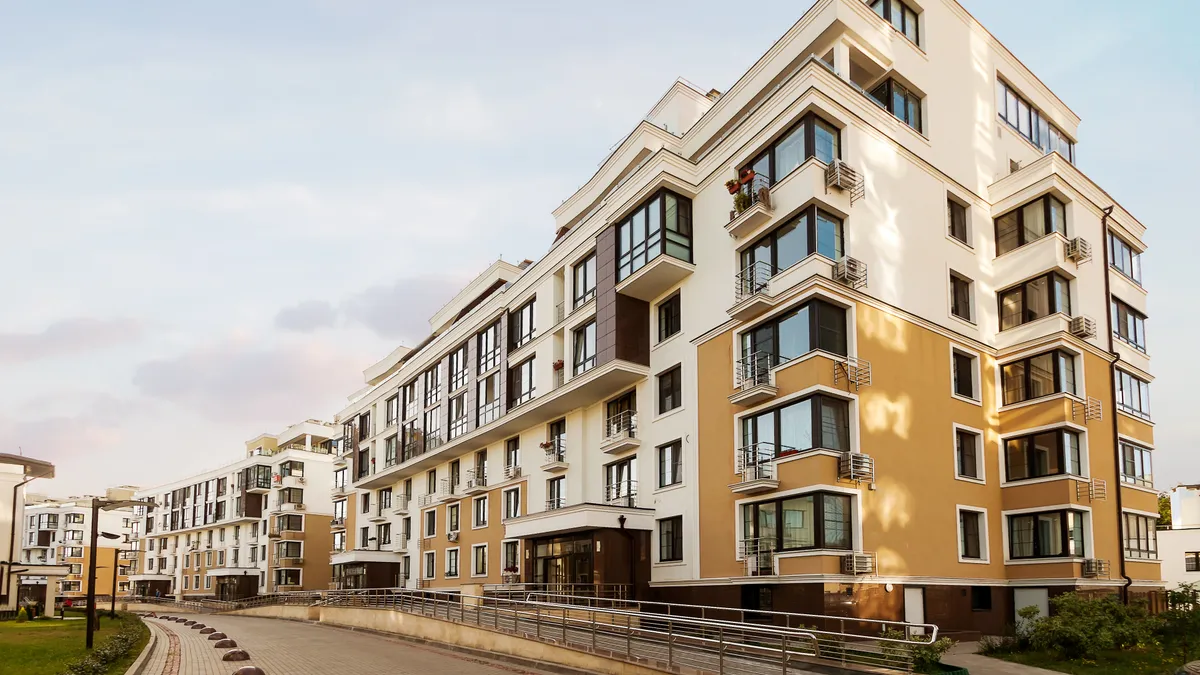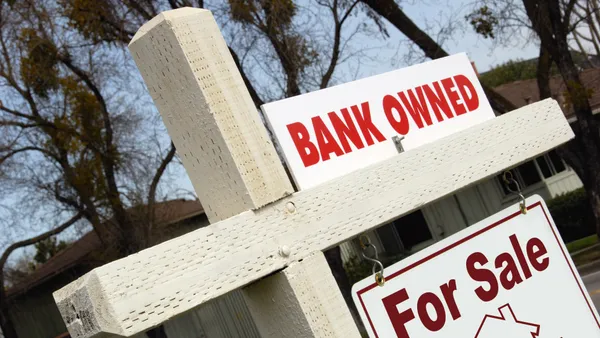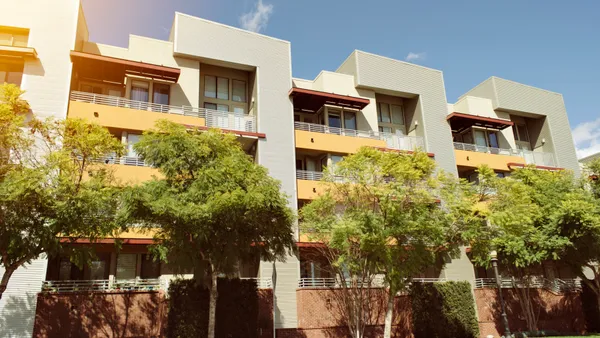Dive Brief:
- After falling to its lowest level on record at the end of last year, real estate industry sentiment is on the rise again — and expected to move higher in the near future, according to Bethesda, Maryland-based real estate consultancy RCLCO’s mid-year survey of real estate professionals across the country.
- The RCLCO National Real Estate Market Index rose to 19.01 by the middle of 2023, up from 8.29 six months ago. However, as any number under 40 indicates a present or impending recession, sentiment still lies in the “danger zone”, said Charles Hewlett, managing director of RCLCO, during an RCLCO webinar last week.
- When asked about the likelihood of a recession, 29% of respondents said that the U.S. is already in one, while 47% expect a recession within the next year. The majority believe it will be a shallow or moderate recession, with a 0% to -2% gross domestic product reduction.
Dive Insight:
Even though sentiment is starting to rise again, over three-fourths of survey respondents rate current market conditions as moderately or significantly worse than they were one year ago. However, 16% reported an improvement — up from 7% in the last survey, and down from 88% two years ago.
The precipitous drop in market sentiment began in mid-2022, when RCLCO’s index dropped from just over 80 to under 40 in a six-month span. This coincides with the start of the Federal Reserve’s campaign to raise interest rates to combat inflation, which has had a chilling effect on the multifamily sales market due to rising borrowing costs.
After 15 months of increases, the Fed held interest rates steady in June following a 25 basis point increase in May to a range from 5% to 5.25%. However, the Fed has indicated that future interest rate increases are on the table.
“Our house view is that rates will continue to remain elevated through the next year,” Scot Bommarito, senior research associate at RCLCO Fund Advisors, said in the webinar, “and possibly start coming down in 2024 as a mild recession sets in.”
When asked about upcoming market indicators, a majority of respondents expect interest rates and cap rates to increase, moderately or significantly, over the next six to 12 months. Capital flows to real estate are expected to fall, as is the homeownership rate.
Many anticipate a moderate decrease in interest rates, but opinions are split on construction costs. Roughly one-third of respondents each expect prices to increase, decrease or remain the same.
However, Hewlett noted that it is more likely that prices will remain the same or rise, rather than fall.
“In our experience, construction costs rarely go down. They go sideways,” Hewlett said, “and hopefully inflation bails us out.”











